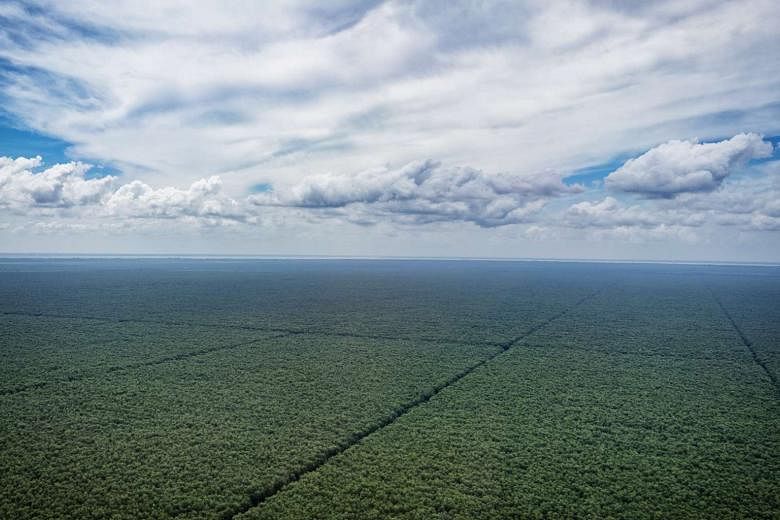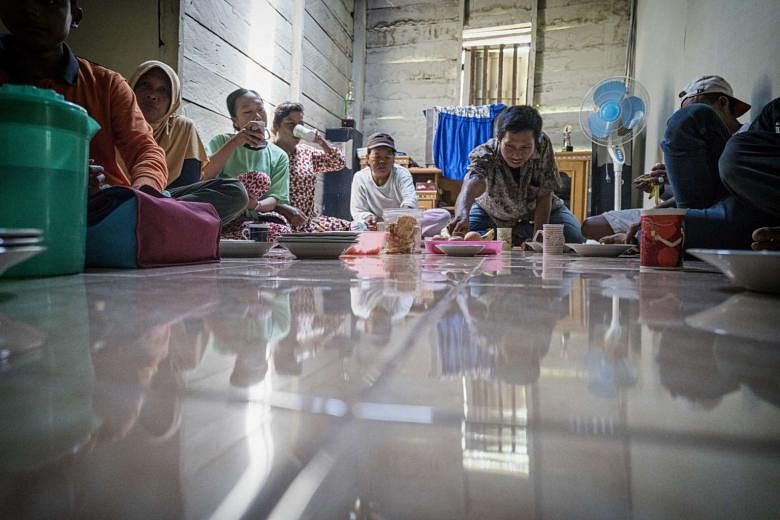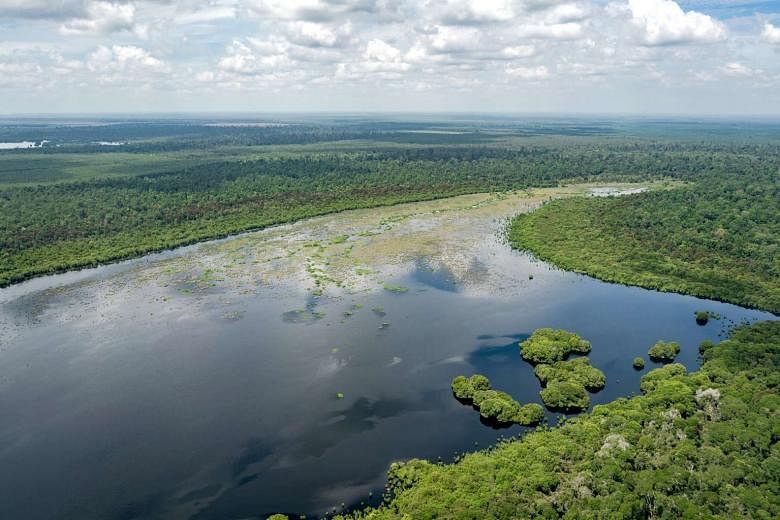PEKANBARU: Five hundred villagers by 2020. That's how many people a training programme in Indonesia's Riau province aims to reach ot to stamp out slash-and-burn practices.
Called the Integrated Forestry and Fire Management System (IFFS), it teaches communities alternative land management techniques and how to prevent fires.
It is run by Sinar Mas Forestry, which manages companies that operate forest plantations in Sumatra and Kalimantan.
The two-year-old programme has changed the lives of 60 villagers living on the lands managed by Asia Pulp & Paper - one of the world's largest manufacturers of tissue, stationery and other paper products - a subsidiary of Indonesian conglomerate Sinar Mas Group.
Farmers there have experienced a higher yield from their crops by using more environmentally friendly methods. This has resulted in more time for them to market their produce.
Changes were initially met with some resistance. But positive results have even school-going children aspiring to become better land managers.
Mr Joss Rinaldy, division head of social community at Sinar Mas Forestry, says it promotes IFFS as a "people's economy programme", providing interest-free loans to villagers to improve their livelihoods.
One farmer received $3 million rupiahs (S$312) to plant melons. He has since recovered six times that amount. Such success stories are getting more villagers interested in the programme.
Mr Rinaldy says: "Our vision is for villagers to stop their slash-and-burn practices and pay more attention to fire issues."
A better future
Mr Suryono, 41, used to live a day-to-day existence, carrying out slash-and-burn activities to boost the measly income he got from rearing livestock and growing vegetables.
But watching him confidently lead a discussion among farmers on the best marketing methods and agricultural techniques, one would be hard-pressed to tell that the father of three once struggled to make ends meet.
It was a chance conversation with a friend during the 2015 regional haze crisis - when his crop of melons, papayas, cucumbers, string beans and chillies were failing - that turned his life around.

His friend had joined the IFFS programme and encouraged Mr Suryono to do so as well to learn better farming techniques and increase profit.
He says: "The haze made it difficult for the other farmers and I to work in the fields. It was hard to breathe, but we still had to get the job done. We lost a lot of crops and struggled to take our products to the market. Learning from IFFS has truly changed my life."
Under the programme, Mr Suryono learnt which crops grew best in specific seasons, how to study market prices and cut out the middleman. He also picked up modern irrigation techniques - something quite alien to a farmer who for most of his life had watered his crops manually or waited for rain to come.

He says: "I no longer have to live day to day or worry about my children's education. I can now make bigger plans. I hope to open a fruit tourism business where locals and tourists can pluck fresh fruits while walking through my farm."
Living the dream
As an instructor in IFFS, he now conducts monthly pow-wows with fellow farmers to identify crops for the coming season. He also gets farming communities to reflect on their previous year's harvest.
Mr Suryono travels around Indonesia to speak at conferences to share his story and encourage a change in farming practices.
"It was a lifelong dream of mine to visit Jakarta. The programme changed my life, and I have now seen more of my country," he says.
Since joining the programme, Mr Suryono has quadrupled his monthly income to 20 million rupiah. He uses the additional money to hire staff to tend to his farm, and shares his know-how with them.

His success has earned him respect among peers and inspired more farmers to join the IFFS programme.
He continues to toil day and night to grow his farm, but hopes his children do not follow in his footsteps.
He says: "I want my children to go to school and learn about creating jobs in the agricultural sector. I want them to be supervisors and make a difference in others' lives."
This article is brought to you by Asia Pulp & Paper.







